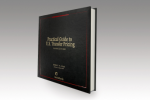IRS Starts 2015 Tax Season; Free File Opens Today,
IRS YouTube Videos:
 The nation’s 2015 tax filing season begins today and a growing array of online services is available to assist taxpayers. Understanding the Affordable Care Act and how this impacts a taxpayer will be a popular feature this year.
The nation’s 2015 tax filing season begins today and a growing array of online services is available to assist taxpayers. Understanding the Affordable Care Act and how this impacts a taxpayer will be a popular feature this year.
Taxpayers have until Wednesday, April 15, 2015 to file their 2014 tax returns and pay any tax due. The IRS expects to receive about 150 million individual income tax returns this year. Like each of the past three years, more than four out of five returns are expected to be filed electronically.
The IRS Free File program, available at IRS.gov, will open Friday for taxpayers, and the IRS will begin accepting and processing all tax returns on Tuesday, Jan. 20.
This year’s return will include new questions to incorporate provisions of the Affordable Care Act (or ACA). The majority of taxpayers – more than three out of four – will simply need to check a box to verify they have health insurance coverage. For the minority of taxpayers who will have to do more, www.IRS.gov/aca features useful information and tips regarding the premium tax credit, the individual shared responsibility requirement and other tax features of the ACA.
“Our employees will be working hard again this season to help the nation’s taxpayers,” IRS Commissioner John Koskinen said. “We encourage people to use the tools and information available on IRS.gov, particularly given the long wait times we anticipate on our phone lines. As always, taxpayers can benefit by filing electronically.”
Koskinen announced that taxpayers can begin preparing their returns using the Free File system on Friday, Jan. 16. Available only at IRS.gov, Free File offers two filing options:
• Brand-name software, offered by IRS’ commercial partners to about 100 million individuals and families with incomes of $60,000 or less; or
• Online fillable forms, the electronic version of IRS paper forms available to taxpayers at all income levels and especially useful to people comfortable with filling out their own returns.
E-file, when combined with direct deposit, is the fastest way to get a refund. More than three out of four refund recipients now choose direct deposit. People who e-file make fewer mistakes, and it costs nothing for those who choose Free File. In all, 14 software companies will be participating in this year’s Free File program.
Taxpayers who purchase their own software can also choose e-file, and most paid tax preparers are now required to file their clients’ returns electronically. In addition to Free File, commercial software companies also are currently available for taxpayer use.
The IRS will begin accepting and processing all returns – whether e-file, Free File or paper tax returns — on Jan. 20.
Like last year, the IRS expects to issue more than nine out of 10 refunds within 21 days. Again, the fastest way to get a refund is to e-file and choose direct deposit. It takes longer to process paper returns, it will likely take an additional week or more to process paper returns meaning that those refunds are expected to be issued in seven weeks or more.
Health Care Basics
The Affordable Care Act requires that a taxpayer and each member of their family either has qualifying health insurance coverage for each month of the year, qualifies for an exemption , or makes an individual shared responsibility payment when filing their federal income tax return. Some moderate-income taxpayers may also qualify for financial assistance to help cover the cost of health insurance purchased through the Health Insurance Marketplace. Taxpayers will fall into one or more of the following categories:
• Check the box. Most taxpayers will simply check a box on their tax return to indicate that each member of their family had qualifying health coverage for the whole year. No further action is required.
Qualifying health insurance coverage includes coverage under most, but not all, types of health care coverage plans. Taxpayers can use the chart on IRS.gov/aca to find out if their insurance counts as qualifying coverage.
• Exemptions. Taxpayers may be eligible to claim an exemption from the requirement to have coverage. Eligible taxpayers need to complete the new IRS Form 8965, Health Coverage Exemptions, and attach it to their tax return. Taxpayers must apply for some exemptions through the Health Insurance Marketplace. However, most of the exemptions are easily obtained from the IRS when filing a return.
• Individual Shared Responsibility Payment. Taxpayers who do not have qualifying coverage or an exemption for each month of the year will need to make an individual shared responsibility payment with their return for choosing not to purchase coverage. Examples and information about figuring the payment are available on the IRS Calculating the Payment page.
• Premium Tax Credit. Taxpayers who bought coverage through the Health Insurance Marketplace should receive Form 1095-A, Health Insurance Marketplace Statement, from the Marketplace by early February. This form should be saved because it has important information needed to complete a tax return.
If the Form 1095-A is not received by early February, contact the Marketplace where coverage was purchased. Do not contact the IRS because IRS telephone assistors will not have access to this information.
Taxpayers who benefited from advance payments of the premium tax credit must file a federal income tax return. These taxpayers need to reconcile those advance payments with the amount of premium tax credit they’re entitled to based on their actual income. As a result, some people may see a smaller or larger tax refund or tax liability than they were expecting. Use IRS Form 8962, Premium Tax Credit (PTC), to calculate the premium tax credit and reconcile the credit with any advance payments.
The IRS also reminded taxpayers that a trusted tax professional can also provide helpful information about the health care law. A number of tips about selecting a preparer and national tax professional groups is available on IRS.gov.
The IRS urges all taxpayers, especially those claiming the premium tax credit, to make sure they have all their year-end statements in hand before they file their return. This includes Forms W-2 from employers, Forms 1099 from banks and other payers, and, for those claiming the premium tax credit, and Form 1095-A from the Marketplace. Doing so will help avoid refund delays and the need to file an amended return later.
Tax Facts on Individuals & Small Business
 Due to a number of recent changes in the law, taxpayers are currently facing many questions connected to important issues such as healthcare, home office use, capital gains, investments, and whether an individual is considered an employee or a contractor. Financial advisors are continually looking for competitive information to help them provide the best answers for their clients and to obtain new clients. National Underwriter’s Tax Facts series is the only resource written specifically for the financial advisor and producer providing fast, clear, and authoritative answers to pressing questions, and it does so in the convenient, timesaving, Q&A format for which Tax Facts is famous.
Due to a number of recent changes in the law, taxpayers are currently facing many questions connected to important issues such as healthcare, home office use, capital gains, investments, and whether an individual is considered an employee or a contractor. Financial advisors are continually looking for competitive information to help them provide the best answers for their clients and to obtain new clients. National Underwriter’s Tax Facts series is the only resource written specifically for the financial advisor and producer providing fast, clear, and authoritative answers to pressing questions, and it does so in the convenient, timesaving, Q&A format for which Tax Facts is famous.
Anyone interested can try Tax Facts on Individuals & Small Business, risk-free for 30 days, with a 100% guarantee of complete satisfaction. For more information, please call 1-800-543-0874.
Starting September 2015, University of Amsterdam will offer an Advanced LL.M. of International Taxation in English, limited to just 25 annual candidates from around the world. Applications for one of these seats are open until April.
“Moreover”, he continued, “the OECD BEPS project is on every tax counsel’s mind, and such discussions normally involve The Netherlands because, as a business friendly jurisdiction for fifty years, it has attracted multinational operations, employment and tax revenue using a ‘carrot’ policy. Other countries are competing for multinationals’ operations, employment and tax revenue with a ‘stick’ policy of imposing high compliance costs to dissuade international activities. The next five years will be an interesting time as the G20 goes head to head to try to peel away these operations and tax revenue from each other.”








